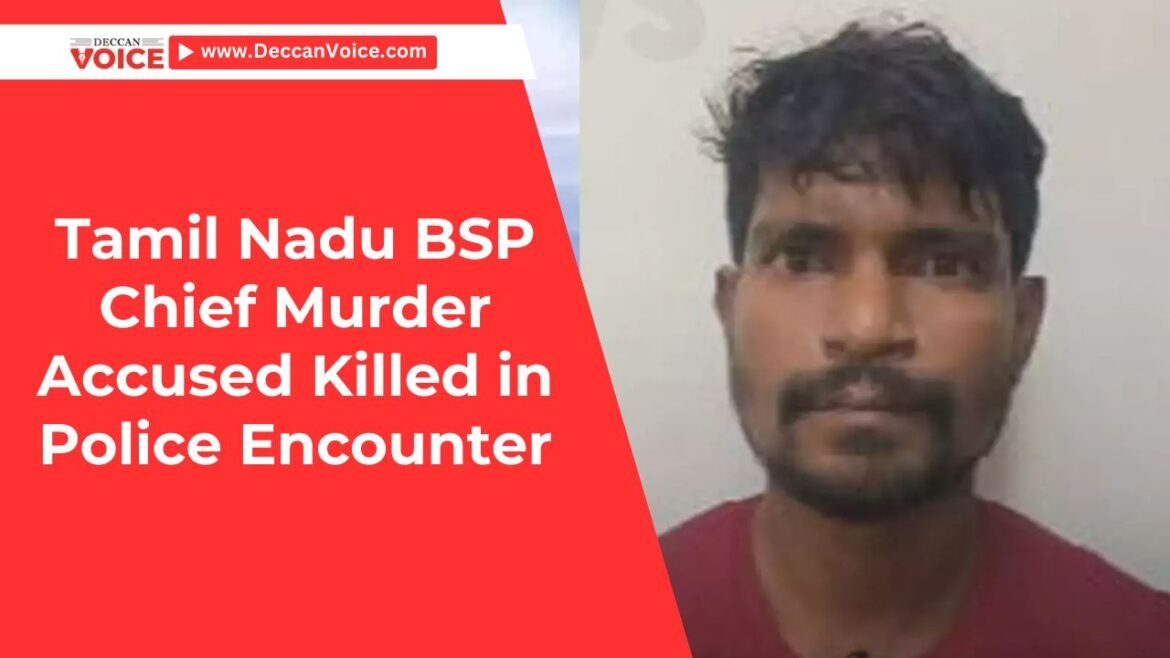Chennai, India – In a dramatic turn of events, the accused in the murder of Tamil Nadu Bahujan Samaj Party (BSP) chief K. Armstrong Mayawati was killed in a police encounter. The police reported that the accused, who had a history of criminal activity, was shot dead during an attempt to apprehend him. The incident has sparked discussions on police encounters and justice delivery in cases involving high-profile political figures.
Background of the Case
K. Armstrong Mayawati’s murder had shocked the political community and raised concerns about the safety of political leaders. The police swiftly identified the prime suspect and launched an extensive manhunt. The accused had been evading arrest and was considered dangerous.
The Encounter
The encounter took place when the police attempted to capture the accused, who reportedly resisted arrest and opened fire. In the ensuing exchange, the police shot and killed the accused. Authorities have stated that the encounter was in self-defense and necessary to prevent further threats.
Public Reaction and Legal Implications
The incident has elicited mixed reactions from the public and political leaders. While some applaud the police for swiftly dealing with a dangerous criminal, others question the legitimacy of police encounters and advocate for due process. The event also brings attention to the ongoing issues of political violence and the measures needed to protect public figures.



